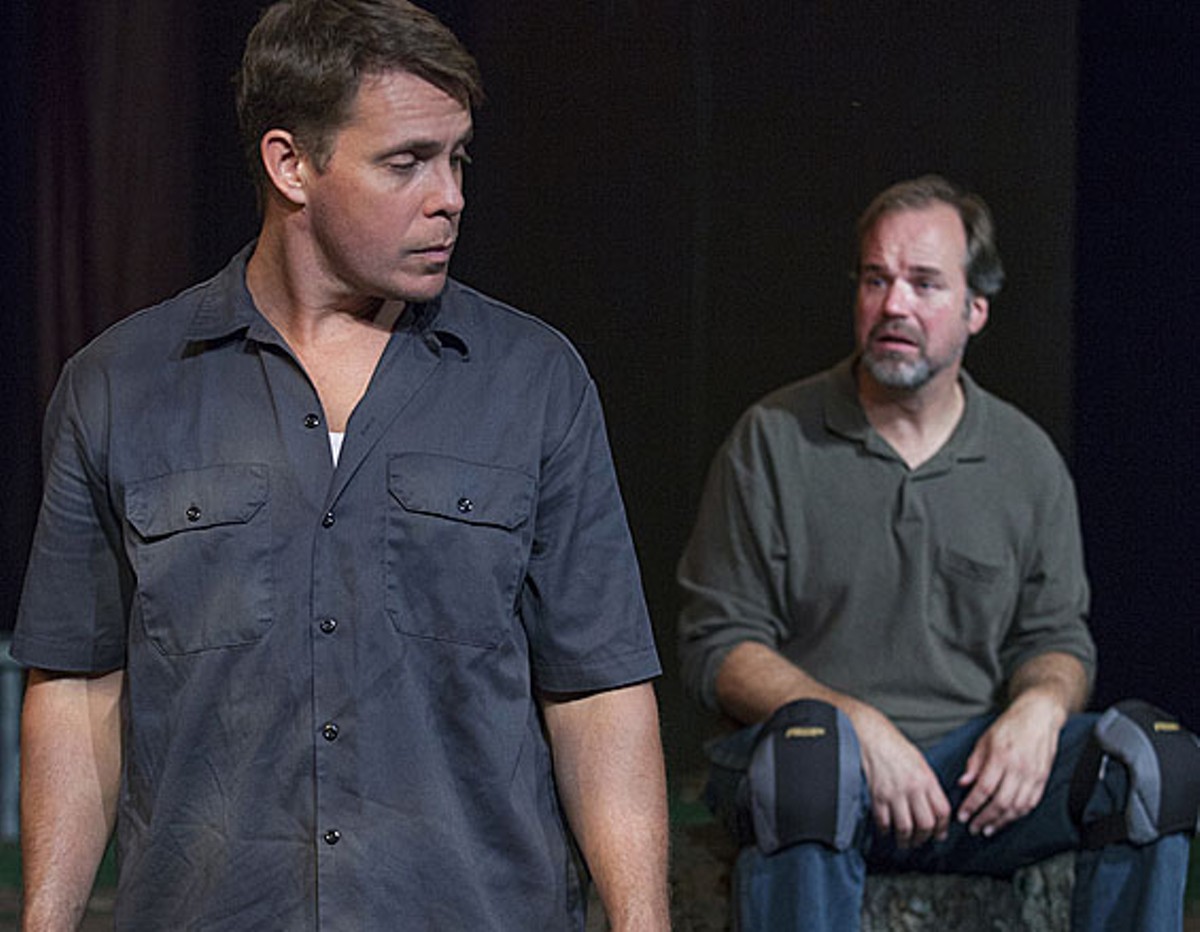Union Avenue Christian Church's basement theater has been transformed into a sunny green sward with a precise labyrinth of partially buried bricks in the center. Here in this meditation space, unrepentant child molesters and their vicious caretakers struggle with their personal demons and each other as the sex criminals wait for the day they'll be released back into society.
The wrinkle in Lee Blessing's Lonesome Hollow is that these criminals have already served their sentences. They're free men still imprisoned, thanks to new legislation which allows private companies to retain offenders in legal limbo in what are essentially for-profit concentration camps because society doesn't want them back. Hence the labyrinth, which gets a heavy workout as a symbol and metaphor for during this overlong one-act play.
Tuck (Jeff Kargus) is the builder of the labyrinth, and he's well aware of what it stands for. This former fine-art photographer offers up a lengthy exposition of its origin as a substitute for a penitential pilgrimage to Jerusalem during the Middle Ages that sounds more like a school presentation than thoughtful speech. That's more Blessing's problem than Kargus'; it's an awkward string of words that sounds pretentious and rings false, and it's one of several such artificial passages in Lonesome Hollow.
Tuck is here because he photographed underage nude girls. He also slept with one of them, an act he genuinely regrets — hence his construction project. Blessing sets up Tuck as a symbol of the unfairness of these new laws, a counterpoint to the much more evil Nye (B. Weller), who violently and apologetically abused young boys. Weller brings a feral rage to Nye, a man who knows what he did is heinous but also knows he's never going to stop doing it. Tuck is further victimized by Mills (Elizabeth Graveman), a nasty caretaker who's awfully quick with a Taser. Mills has a fondness for Tuck that's rooted in her secret passion for his photographs, which leads them both into some dark places.
Above them all is Glover (Mark Abels), the preternaturally calm psychologist/administrator of this facility. Behind his mien of professional disinterest, Glover is as ruthless as Nye. The slow realization that the watchers are as twisted as their charges is one of the few interesting developments in Lonesome Hollow, and it's mostly because of Abels. He plays it phenomenally cool, a pleasant smile never far from his lips as he psychologically dissects these men and casually has them tortured. Glover brushes aside Nye's concerns about the legality of privatized detention with the downright chipper explanation, "If you can get the people behind you, you can make anything a crime. That's called 'democracy.'"
Blessing justifies quite a bit of what happens here as being the will of the people. It's true that sex offenders are not high on the list of beloved citizens, and that camps of them are currently gathered on the outskirts of cities and towns because of their unique residency restrictions. Maybe it's unfair; maybe society owes them a solution. Lonesome Hollow doesn't come down on any side of the issue, however, because its only purpose is to provoke thought and discussion. But after two hours, Lonesome Hollow feels more like a case of talking loud and saying nothing.






